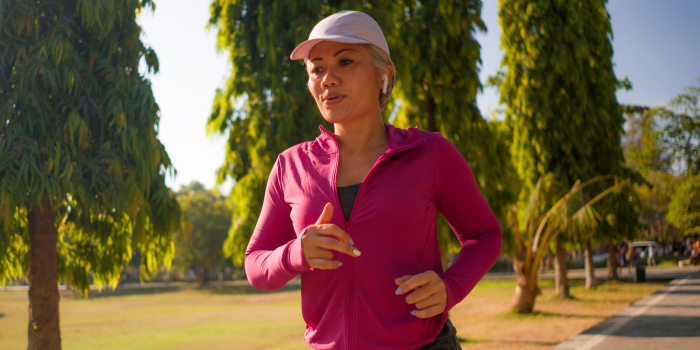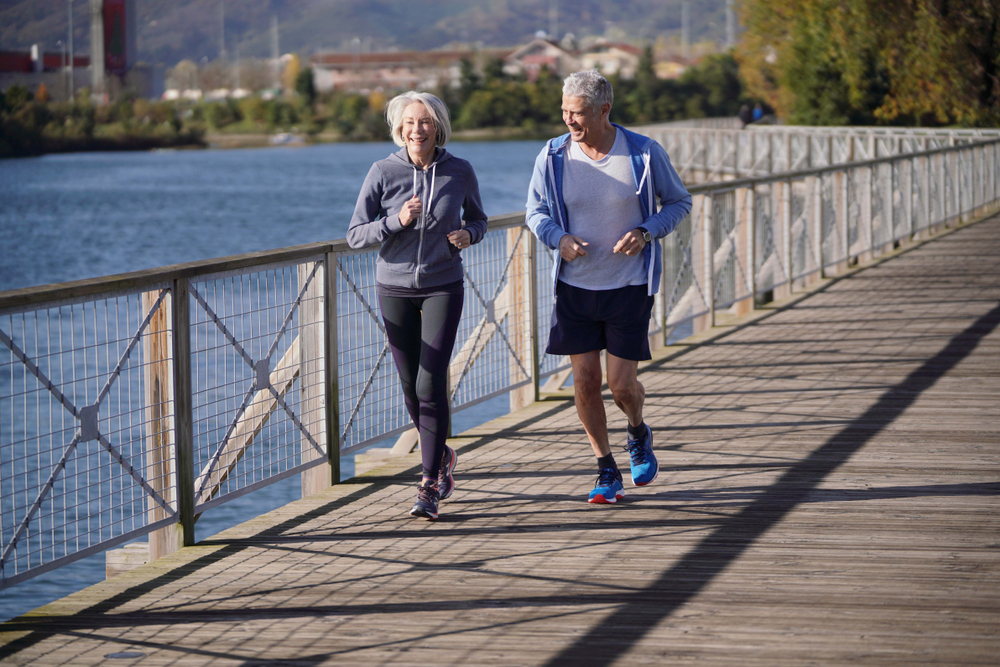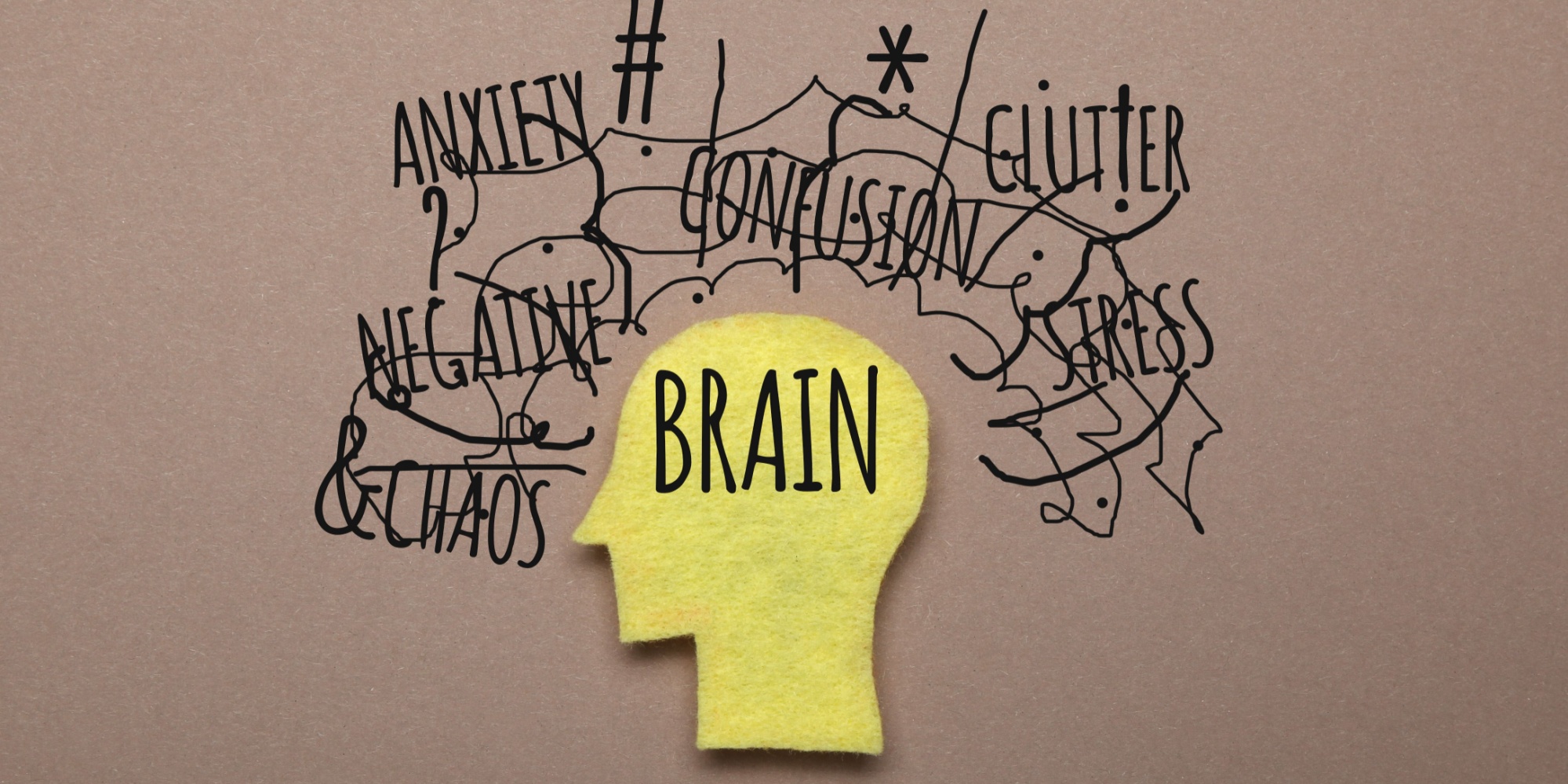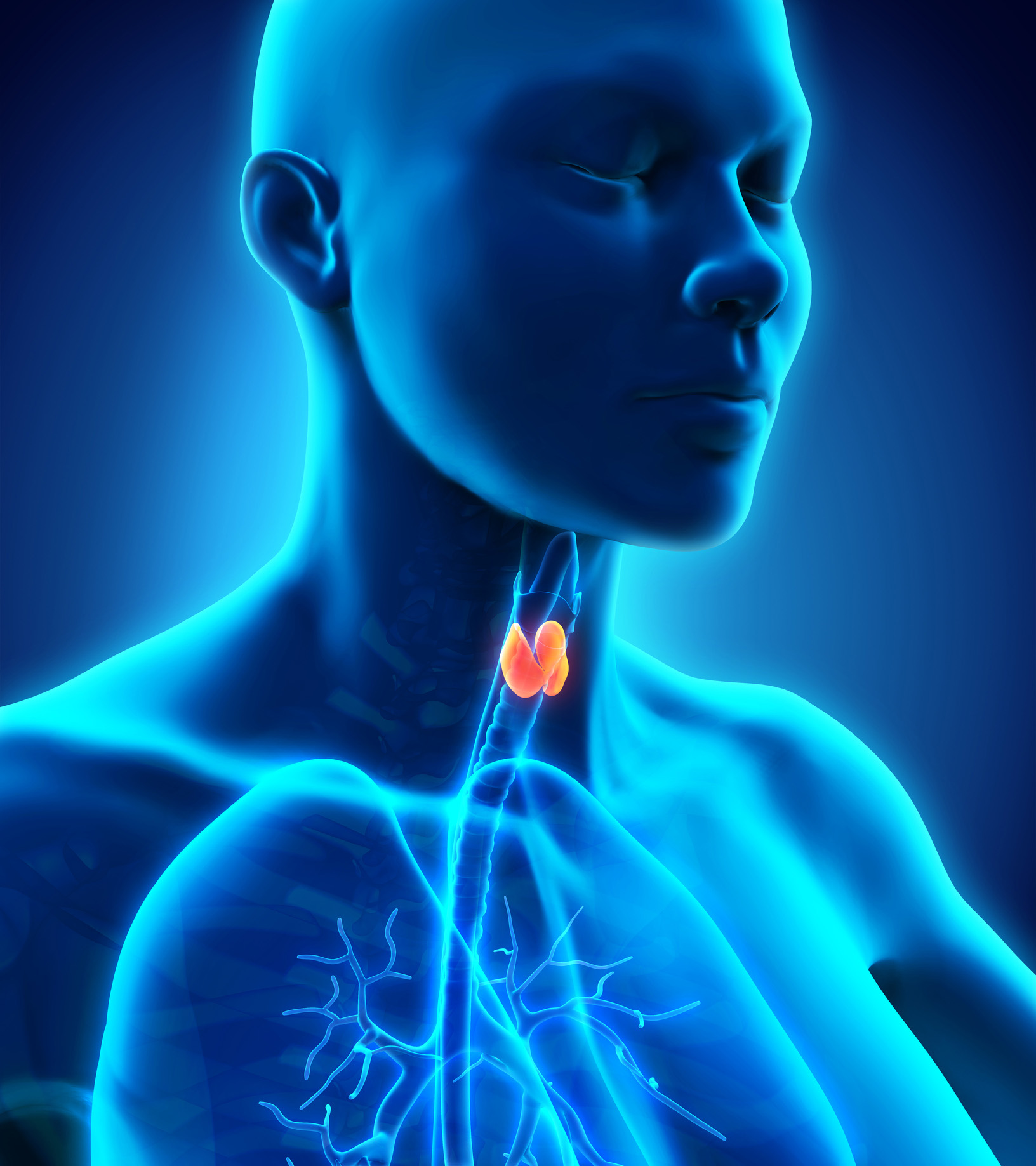
Running has life-enhancing powers
June 25th, 2025It’s time to get your running shoes out of the cupboard because, according to a study published in the International Journal of Environment Research and Public Health, running 75 minutes a week can add 12 years to your lifespan. Going for a run might not sound like fun, but it has life-enhancing powers according to Runner’s World.
Cellular ageing.
The cellular ageing study looked at more than 4400 participants, comparing those who ran 75 minutes a week to those who ran 10 minutes per week. The latter showed reduced telomere length which has been related to increased mortality and a high risk of various diseases. It was concluded that those who ran 75 minutes a week could add 12 years to their lifespan. That wasn’t the only benefit, the study also revealed that running improved health span. Meaning, not only is it possible to extend lifespan but you can live a healthier life during that period.
Why is the length of a telomere important?
A telomere is a repetitive DNA sequence on the end of a chromosome. Its job is to protect the end and make sure it doesn’t fray or get tangled. With age, telomeres shorten and when they get too short, it causes a cell to die. The longer the telomere, the higher the chance of increased lifespan.
Are you ready to run yourself into longevity?
Don’t worry if you don’t possess running shoes or lack the motivation to start running. We are here to help.
Here’s a guide on how to become a runner.
- If you haven’t exercised for a while, you have a health condition, or you are on medication or recovering from a treatment or operation, it’s important to talk to your doctor before you pound the streets or treadmill
- If you have disabilities and limitations ask for advice about running styles and training programs. If you are pregnant, speak to a doctor before you start running and they will recommend the best approach if you are at high risk and it not being appropriate to start running until after you have the baby
- Create a training program. There is plenty of information online or you could talk to a personal trainer or other runners
- Set small, attainable goals or you could get an injury or become unmotivated
- Wear appropriate clothing and footwear. It doesn’t have to be expensive, shop around, you can get good supportive running trainers from a sports shop or online. Research trainers and buy appropriate socks to reduce the chance of blisters. If you are running in the dark, wear hi-viz accessories so you can be easily seen
- Taking a step further, you could go for a gait analysis to see how you run and what trainers would be best for your running style
- Apply Vaseline or similar cream in skin areas that are prone to chaffing such as the inner thighs, nipples or underarms
- Avoid injuries – warm up and stretch before you start running cool down and stretch at the end. Listen to your body and increase your distance gradually. Include strength and crossing training in your training program if possible
It’s essential not to overdo your training, here are the most common running injuries and high-risk indicators:
Runner’s knee (Patellofemoral pain syndrome)
Pain around the knee cap especially on exertion.
Iliotibial (IT) band syndrome
Pain on the outside of the knee caused by inflammation of the IT band.
Patellar tendinopathy
Pain and tenderness in the patella region.
Plantar fasciitis
Inflammation of the thick band of tissue at the bottom of the foot.
Achilles tendinopathy
Pain and inflammation in the Achilles tendon which connects the calf to the heel bone.
Ankle sprains
Injury to the ligaments surrounding the ankle joint.
Shin splints (medial tibial stress syndrome)
Pain alongside the shin bone due to overuse or improper form.
Stress fractures
Small cracks in the bone often in the lower leg or foot caused by repetitive stress.
Hamstring strains
Tears or overstretching of the hamstring muscles at the thigh.
Hip adductor and hip flexor strains
Strains in the muscle on the inner or front of the thigh.
Blisters
Fluid-filled pockets on the skin are often caused by friction inside the shoes.
Overuse
Running too far, too fast, too frequently without proper rest.
Improper form
Poor running technique can strain muscles and joints.
Inadequate footwear
Wearing shoes that don’t provide enough support or cushioning.
Muscle imbalances
Weak or tight muscles can lead to uneven stress on the joint.
Running surfaces can cause injuries
Uneven or hard surfaces can increase the risk of injuries, you could stumble or fall.
A sudden increase in training
Increasing mileage and speed too quickly can overwhelm the body.
Important tips:
- Be aware of your surroundings and footing
- If you want to wear headphones, be more alert on the roads
- Stay hydrated and eat a nutritious diet – see below
- Reward yourself if you achieve your goals
- Prepare your body to run
Are you looking for a product that targets and reduces the visible signs of ageing? Our product TA65® Telomerase Complex Skin Cream is a clinically proven skin cream that extends telomeres.
References
https://www.mdpi.com/1660-4601/20/19/6872
https://www.runnersworld.com/uk/news/a45685364/running-help-you-live-longer/
https://runkeeper.com/cms/start-running/how-to-become-a-runner-in-8-simple-steps/
https://www.runnersworld.com/uk/nutrition/diet/a39672411/runners-diet/
https://www.runnersworld.com/uk/training/beginners/a772727/how-to-start-running-today/
References
https://www.mdpi.com/1660-4601/20/19/6872
https://www.runnersworld.com/uk/news/a45685364/running-help-you-live-longer/
https://runkeeper.com/cms/start-running/how-to-become-a-runner-in-8-simple-steps/
https://www.runnersworld.com/uk/nutrition/diet/a39672411/runners-diet/
https://www.runnersworld.com/uk/training/beginners/a772727/how-to-start-running-today/








